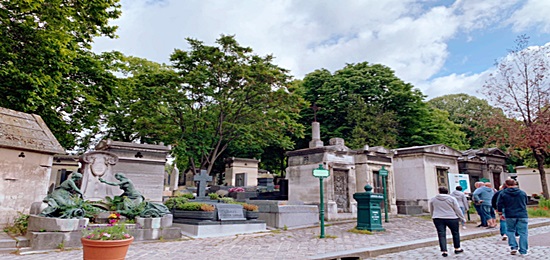|
Have you ever heard of the word, Book-journalism? Book-journalism is a compound word of book and journalism and means writing that is ‘deep as a book, quick as the news’. We often find ourselves craving for more in-depth content when we are reading articles which talk about specific topics or events. If you are that person who wants more information, but book is too much for you, then I recommend you Book-journalism. These are books that are around 100 pages, but give you the depth that you needed and craved for. Book-journalism shortens the publication time of a book takes, from 2 years to just 2 months and they choose topics that we should think about deeply and thoroughly in this constantly changing world. Then what is the topic that we need to focus on right now?
As we are now facing the fourth industrial revolution, the average life expectancy of Koreans is over 80 years old. Do you think you are far away from death? In fact, since the start of this unforeseen pandemic, we are living in a world that is closer to death than ever. Even though, we use the phrases related to death like, “I’m gonna kill you” and “you are so dead” almost every day without giving much thought about it, Korean society tries not to face death and chooses to be blind. Surprisingly, the author finds this kind of attitude towards death even in cemeteries.
The author says that our attitude towards death is shown in the way that we treat a cemetery. Prior to modern society, most cultures kept their cemeteries closer to their lives because there was a widespread perception that death was an extension of life that should never be treated neglectfully. But since then, the industrial revolution and the development of various technologies have caused the cemetery to get kicked out to the outskirts. This has set a definite boundary between the people alive and dead and it means there’s no interaction between life and death.
As the inside and outside of the city has been completely separated, we think life is completely different from death. However, life and death coexist in a cemetery in Paris as the author introduces. Pere Lachaise Cemetery, one of the three great cemeteries in Paris, creates not only a great vibe with its well-organized gardens and various sculptures, but also catches people’s attention because the cemetery itself and life are connected by spaces like the subway station or the surrounding residential district. Pere Lachaise Cemetery, which has steadily been receiving people’s love and attention, has been a date spot for lovers, a promenade for local residents, and a tourist-spot. Isn’t it surprising that a cemetery could be a date spot? To people in Paris, cemetery is neither a distasteful place nor a place to avoid.
 |
One thing to add, I want to point out that keeping cemetery closer to our life is simply not about just death and grief. Keeping a place for self-reflection and soul-searching in our life would definitely help us in a city life where people could easily be chasing after youth and fanciness. Try not to look at a cemetery as something negative and gloomy, instead, find something beyond death in it.
Centuries of separation and disconnection have prevented us from taking our time to reflect on ourselves and seeing death and life as one, not just as a means of spatial division. Recently, ‘end of life planning’ has become popular among millennials in the States. There is a growing interest in well-dying after well-being, and people are preparing death which is one of the most important moment in our life when we are young and healthy. If human history continues to be made, the relationship between the dead and the living will always continue. Why don’t we take the case of Paris and the U.S. as a good example and start thinking about the meaning of death again this time?
“Death is the side of life which is turned away from us” – Rainer Maria Rilke
< Copyright © The Gachon Herald All rights reserved > |
